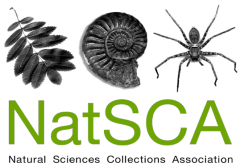Senior Curator in Charge, Historical Collections and British and European Seed Plants
The Natural History Museum is one of the world’s leading museums, internationally recognised for its dual role as a centre of excellence in scientific research and as a leader in the presentation of natural history through exhibitions, public programmes, publications and the web.
Embedded within the Algae, Fungi and Plants Division of the Department of Life Sciences, the Senior Curator in Charge (SCiC) Historical Collections and British and European Seed Plants will lead and manage the Historical Collections and the British and European seed plant herbaria, ensuring best practice in collections care and strategic development of the collections. An expert in a relevant field, the SCiC will provide a high level of scholarship across these collections specifically in collections-based science (e.g. taxonomy, systematics, organismal biology). Working towards maximising the significance of the collections for their various purposes, emphasis will be on achieving the strategic goals and values of the NHM. This post will report to the Principal Curator in Charge of the Algae, Fungi and Plants Collections.
Salary: £35,164 (plus 5% responsibility allowance) per annum plus benefits
Contract: Permanent
Closing date: 9am on Friday 10 February 2017
Role competences: Academic Qualifications
1.Relevant higher qualification (MSc or relevant postgraduate experience is relevant, a PhD is desirable), or equivalent experience, with an emphasis on taxonomy or systematics and the use of natural history collections in science.
Role competencies
2. In depth knowledge and experience of collections management, care and development
3 .Detailed knowledge of a collection, its associated literature and its systematics/taxonomy with the ability to apply and discriminate taxonomic/diagnostic characters for identification and organisation
4. Proven ability to effectively lead and manage curatorial or other science teams
5. Ability to supervise graduate, undergraduate level students and/or visiting scientists
6. Successful track record in publishing scientific articles
7. Knowledge or awareness of major current questions in organismal biology
8. Demonstrable working knowledge and practical experience of associated information management systems for collections (e.g. EMu)
9. Experience of successful delivery of collections/curatorial projects
10. Excellent communication skills; presenting, writing
11. The ability to develop and maintain effective relationships with a variety of stakeholders (internal and external researchers, public engagement, visitors, students, volunteers)
